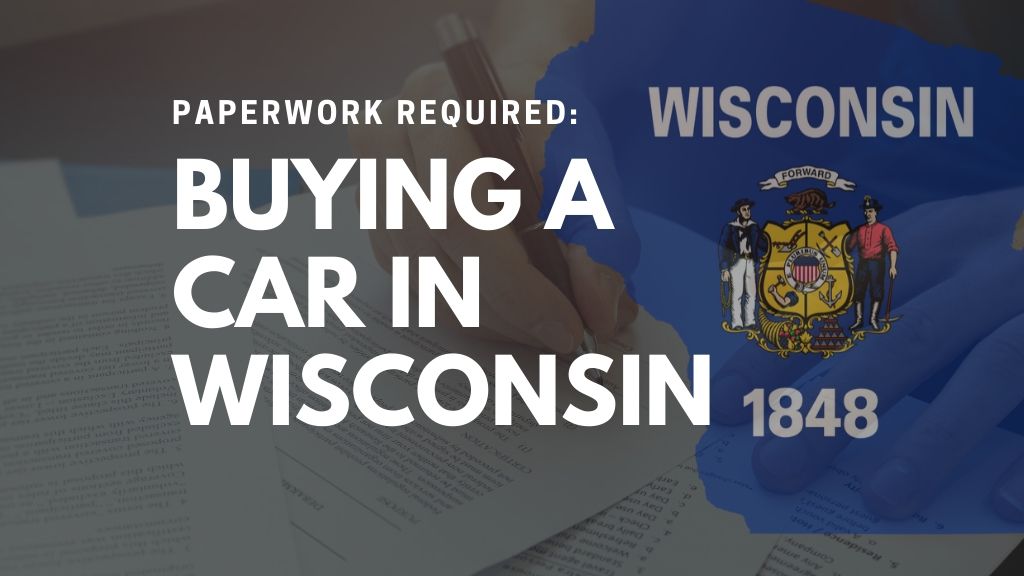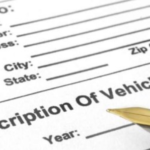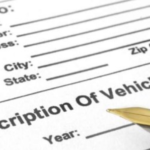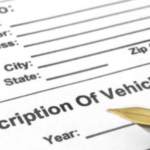Last Updated on June 14, 2020 by Jason Mason
In Wisconsin, you can buy a car from a private seller or a dealer. When you buy the car from a dealer, they will handle the required paperwork on your behalf. But when you buy it from a private seller, you will need to handle the required paperwork yourself. So, you need the required paperwork from the seller in order to get the car registered and titled with the Wisconsin Division of Motor Vehicles (DMV). Continue reading this article to get more information about the paperwork required when buying a car in Wisconsin.
Required Paperwork
You must obtain the following paperwork from the seller before you pay them the agreed purchase price:
- A Bill of Sale: This is a document that shows both your name and that of the seller, the purchase price, vehicle make, model and year.
- The Certificate of Title: This document must be signed correctly by the place and include correct vehicle odometer reading.
If the title has lien on it and it is not stamped with a “paid” tag by the lending company, don’t purchase the vehicle until the release is proven. In some cases, the loan may be paid off but the title fails to show this. In this incident, ask the seller to obtain a signed letter from the lending company detailing information about the loan clearance and the vehicle details. Without this letter, you will not be permitted to register or title the vehicle.
You cannot legally purchase a vehicle without a title. If the title is missing, the seller must apply for a duplicate copy before selling the car. So, the seller must fill and complete Form MV1 (Title/License Plate Application Form) and pay a title replacement of $69.50 to get a duplicate title. The seller can then transfer the title to you.
Vehicle Registration Process
After obtaining all documents listed above, you can then take them to the DMV office to register the vehicle in your name. The same procedure applies if you are selling a car to an individual. If you live in any of the following counties, you will need to submit emission inspection certificate in order to register the vehicle:
- Kenosha.
- Ozaukee.
- Milwaukee.
- Racine.
- Washington.
- Sheboygan.
- Waukesha.
Vehicle emission testing is required for all vehicles that are more than 5 years old. It is the responsibility of the seller to provide the buyer with testing papers within 45 days of sale. If the vehicle already passed the emission testing within 180 days before the sale, the certificate will not be required.
If you are purchasing the vehicle from a private party, you will need to take the paperwork for registration and titling to the DMV. If you purchase a vehicle from the dealership, the dealer will handle the paperwork on your behalf. Most vehicle registration renewals can be done by mail or online.
Once you have submitted all the paperwork to the DMV and paid all the necessary fees, you will be issued with temporary license plates that you can use to legally drive your vehicle in Wisconsin until the regular license plates are processed. If registration period is lapsing, you will receive a notice from Wisconsin DMV by mail requesting you to renew your registration.
Is Bill of Sale required for titling?
A bill of sale is not required during vehicle registration and titling. However, this document is required for your own records. You can use it to show proof of vehicle ownership when asked to do so by authorized authorities.
What are Wisconsin car insurance requirements?
The following coverage types are essential in making you to fulfill Wisconsin’s car insurance laws:
- Uninsured motorist
- Liability
- Liability Insurance
- Underinsured motorist.
The liability car insurance helps you pay for damages to property or injuries following an accident that you caused. The Wisconsin law requires each accident to be covered by the following minimum liability coverage per accident:
- $50,000 total for death or injury to multiple people in a single accident
- $25,000 for injury or death, per person
- $10,000 for property damage.
What happened if i’m do not have car insurance?
In the event of a car accident caused by uninsured driver, your uninsured motorist coverage will help you cover for the injuries to you and your passenger. The same will also apply to the driver whose car insurance is underinsured. In Wisconsin, you are required to have a car insurance policy that meets the following minimum coverage requirements per accident for underinsured and uninsured coverage:
- $300,000 for total injuries per accident
- $100,000 for injuries per person.




